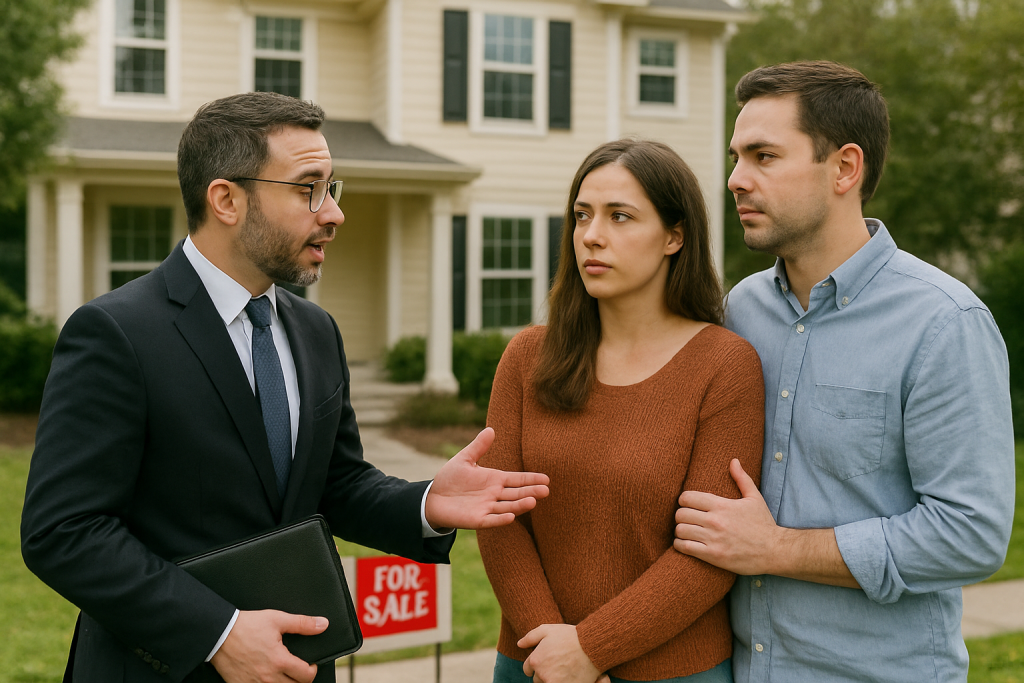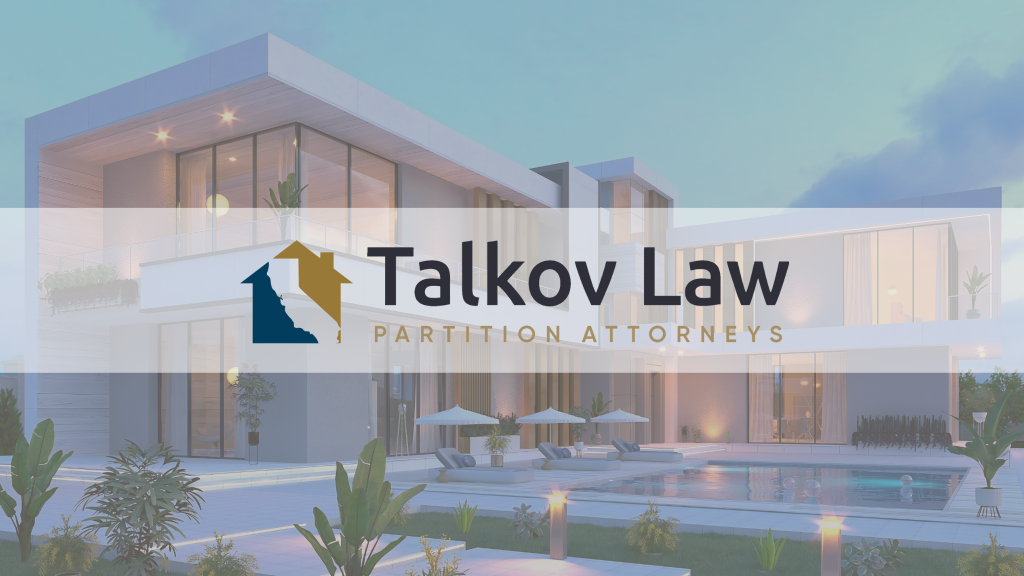Settle Your Property Dispute Without Paying Upfront
Partition Attorneys in Capitola, Aptos, and Scotts Valley
When co-owners in Santa Cruz County face disagreements over shared property, the law offers a definitive solution: partition. At Talkov Law, we specialize in partition actions in California, leveraging our extensive experience in real estate law, deep understanding of local market conditions, and strong negotiation skills to protect your rights and maximize your property’s value.
- Zero Partitions Denied
- 500+ Partition Cases Filed
- Most Cases Resolved in Under 7 Months
- Qualified Cases May Pay at the End; Monthly Billing Also Available
Call Now at (831) 999-9900

Next Steps to Resolve Your Partition Dispute
Our skilled partition attorneys will support you through every step. Let us handle the complex legal details while you move forward.
Co-Ownership Conflict? Not Anymore.
Co-ownership disputes resolved in under 7 months, without any upfront costs to you.
At Talkov Law, our exclusive focus on partition actions has allowed us to help hundreds across California in cases just like yours.
Request a Free Consultation
Schedule a free consultation today and discover your options for ending co-ownership disputes.

Begin Legal Action Now

Claim Your Share of the Property
What is a Partition Action?
A partition action is the court’s method of resolving disputes between co-owners by ordering the sale or division of real estate.
Common Scenarios
- Rental property owned by multiple investors
- Properties bought with an ex-partner
- Shared property where one owner wants cash out, the other does not
In California, any co-owner has an absolute right to partition real property under California Code of Civil Procedure 872.710.

Join the Hundreds Who Rely on Talkov Law
From complex legal battles to life-changing victories, our clients share how Talkov Law helped them find clarity, confidence, and success.
Frequently Asked Questions About Santa Cruz County Partition Actions
This FAQ covers co-owners’ most frequent concerns: forcing a sale, handling court costs, and understanding the timeline.⏎If your question isn’t here, don’t worry—your free consultation is a click away.
📞 Call (877) PARTITION 📞
How is the property divided in a Partition Action in Santa Cruz County?
In a California Partition Action, such as in Santa Cruz County, the court may order the property to be physically divided among the co-owners if feasible, or more commonly, it may order the property to be sold and the proceeds distributed among the co-owners according to their ownership interests.
Can I recover attorney's fees in Santa Cruz County?
In California, including Santa Cruz County, attorney's fees in a partition action can be recovered if the court finds it equitable, typically apportioning the fees among the parties in proportion to their ownership interests.
How much does a Partition Action cost in Santa Cruz County?
The cost of a Partition Action in Santa Cruz County can vary widely. Partition actions in Santa Cruz County come with a range of expenses, including attorney fees, court costs, appraisals, and other legal services. On average, these cases cost around $20,000, though simpler cases may cost as little as $5,000, while complex disputes involving high-value properties or uncooperative co-owners can go higher.
Do I need a lawyer for a Partition Action in Santa Cruz County?
While it's not legally required to have a lawyer for a Partition Action in Santa Cruz County, it is highly recommended due to the complexity of property laws and court procedures in California, which a qualified attorney can navigate more effectively.

Santa Cruz County Real Estate and Legal Data
- In Santa Cruz County, the median home value is around $1,200,000.
- Santa Cruz County has an estimated population of 273,213.
- The average rent in Santa Cruz County is around $3,000 per month, as of 2024.
At Talkov Law, our Santa Cruz County Lawyers have resolved partition disputes in under 7 months with our expert partition strategies.
Why Choose Talkov Law for Your Partition Case?
- Trusted Experience: 500+ Partition Actions handled – More than any competitor
- Sole Focus: The only California attorneys practicing exclusively partition law
- Record of Success: 16+ years, zero partitions denied


Partition Attorneys Throughout California
Talkov Law assists property co-owners across California in areas such as Orange County, Alameda County, Inland Empire, Silicon Valley, San Bernardino County, Contra Costa County, Fresno County, Ventura County, San Mateo County, Sonoma County, Santa Barbara County, Monterey County, Santa Cruz County, Long Beach, Oakland, Anaheim, Santa Ana, Irvine, Chula Vista, and Rancho Cucamonga
Partition Attorneys Serving All of Santa Cruz County
We also serve clients near Santa Cruz, Watsonville, Scotts Valley, and Capitola.
Our attorneys have extensive experience handling partition actions across Santa Cruz County.
Local Expertise in Neighborhoods Like: Capitola, Aptos, and Scotts Valley.
Your case will likely be heard at the Santa Cruz County Superior Court, located at 701 Ocean Street, Santa Cruz, CA 95060.
Santa Cruz County Property Types and Features
- The most common types of houses in Santa Cruz County are single-family homes, townhouses, and condominiums.
- The average home size in Santa Cruz County is approximately 1,800 square feet. This size reflects the typical single-family home in the area, balancing the region’s coastal lifestyle with the demand for space.
- In Santa Cruz County, a common zoning issue is the presence of strict coastal development regulations due to the California Coastal Act, which can limit property modifications and new constructions near the coastline. This can affect property owners by restricting their ability to expand or renovate their homes, potentially leading to disputes over property rights and land use.
- In Santa Cruz County, more people are homeowners than renters. The area is more known for homeownership due to its suburban and coastal appeal, although high property values can make renting a common choice for some residents.

Santa Cruz County Partition Lawyer Near Me




































































































































